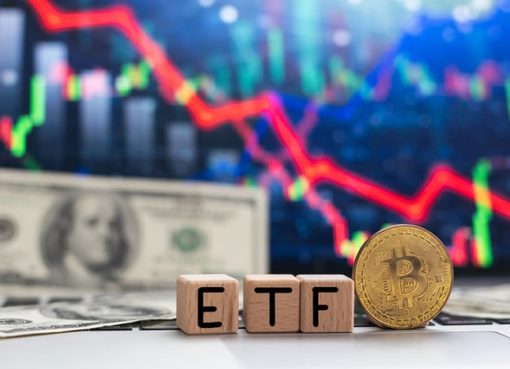Last week, the release of September’s Consumer Price Index (CPI) data showed a monthly increase of 0.4% and an annual increase of 3.7%.
Treasury yields in the United States saw a modest increase earlier today, amid the ongoing uncertainty surrounding the country’s economic outlook. Investors continued to grapple with concerns related to monetary policy and geopolitical issues, making it a delicate balancing act for financial markets.
Treasury Yield Fluctuations
As of 5:35 a.m. Eastern Time, the yield on the 10-year Treasury had risen by more than 5 basis points, reaching 4.683%. Meanwhile, the 2-year Treasury yield increased by more than 1 basis point, reaching 5.069%. It’s crucial to understand that yields and prices have an inverse relationship, meaning that as yields rise, bond prices fall.
The increase in yield comes only days after an earlier report from Coinspeaker indicated that the 10-year Treasury fell over 12 basis points to 4.6571%, while the 2-year Treasury yield also fell, hitting 4.9843% after losing nine basis points.
Recent statements from Federal Reserve officials have been instrumental in shaping market sentiment. On Friday, Philadelphia Federal Reserve President Patrick Harker expressed his belief that current interest rates should be maintained.
Harker argued that this approach would allow the full impact of these rates to unfold. He further emphasized that as long as interest rates remain at their current levels, they will continue to work towards alleviating inflationary pressures and supporting the overall economy.
Harker’s views were consistent with a broader sentiment among several Fed officials who have recently suggested that further interest rate hikes may not be necessary. This stance comes in response to the sharp increase in Treasury yields, which has led to tighter financial conditions, raising concerns about the economic recovery.
Economic Data and Inflation Concerns
Last week, the release of September’s Consumer Price Index (CPI) data showed a monthly increase of 0.4% and an annual increase of 3.7%. These figures slightly exceeded expectations, raising concerns about inflationary pressures. Inflation is a key factor influencing the Federal Reserve’s monetary policy decisions, and the data will continue to be a significant driver of market sentiment.
This week, the financial markets will be closely watching for additional comments from key Fed officials, including Fed Chairman Jerome Powell. These remarks are expected to provide more clarity on the Central Bank’s stance and its future monetary policy decisions.
In addition to monetary policy considerations, investors are also closely monitoring economic data. Fresh insights into the housing sector and retail sales figures are expected to be released on Tuesday. These figures will be critical in assessing the overall health of the U.S. economy and its recovery trajectory.
Aside from economic factors, geopolitical issues are adding a layer of uncertainty to the markets. The Israel-Hamas conflict, which has been ongoing, continues to raise concerns, not only in terms of the humanitarian crisis but also its potential implications for financial markets and the energy sector.
Benjamin Godfrey is a blockchain enthusiast and journalist who relishes writing about the real life applications of blockchain technology and innovations to drive general acceptance and worldwide integration of the emerging technology. His desire to educate people about cryptocurrencies inspires his contributions to renowned blockchain media and sites.




